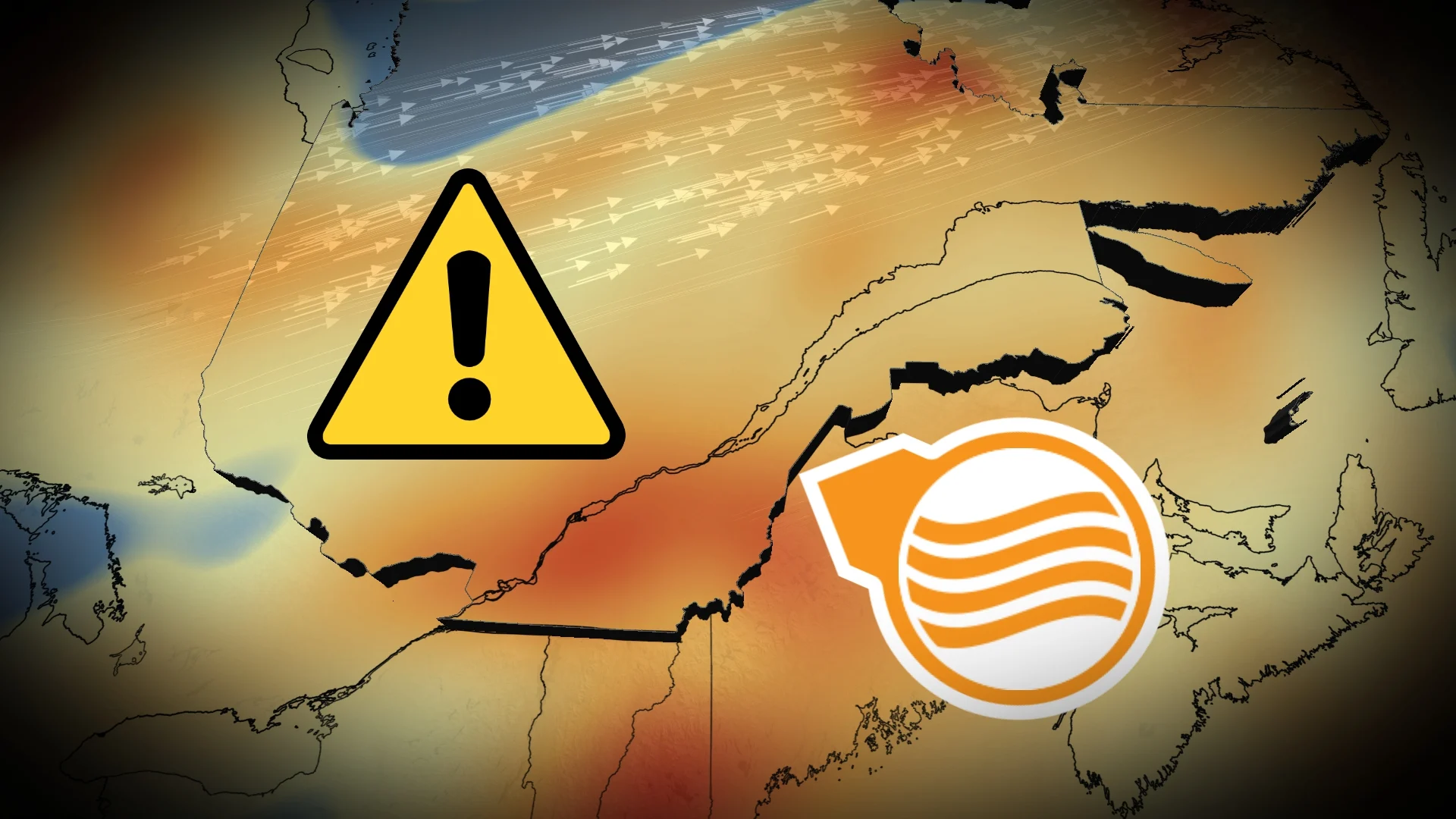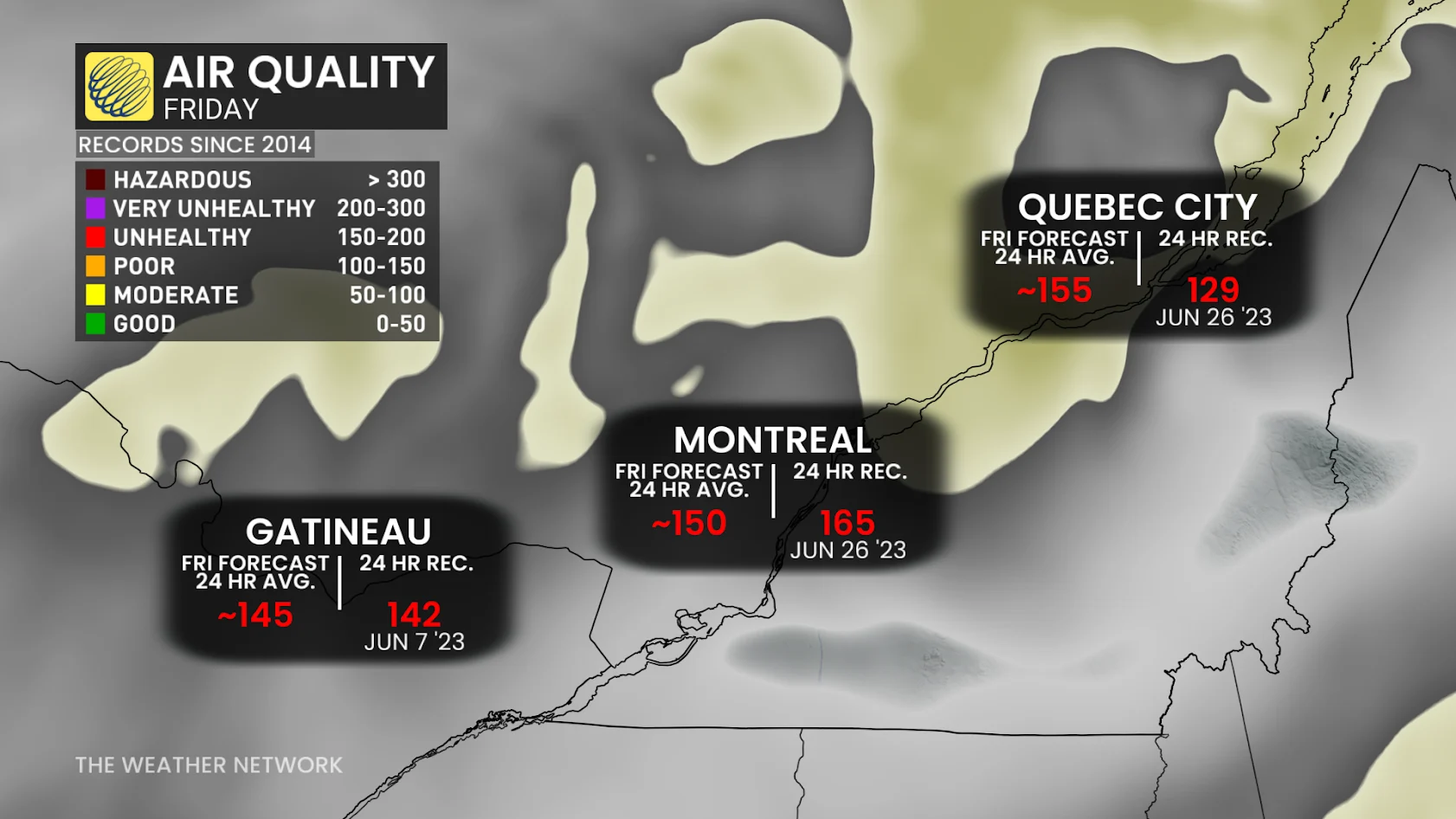
Montreal: The worst air quality in the world Friday
Wildfire smoke has largely stayed away from Quebec so far, but is now making its presence known as air quality warnings and special weather statements have been issued across the province
Looking out the window, the sky may seem strange, maybe even somewhat hazy.
The wildfires raging in Western Canada have finally made their effects felt as far as Quebec, reducing air quality at the surface.
Montreal quickly became the most polluted major city in the world on Friday. Air quality in the city deteriorated to a "poor" level with an index of 182 around 12 p.m. This situation could change throughout the day depending on wind direction and strength.
DON'T MISS: Get the latest wildfire news and safety tips to help you stay safe
Air quality warnings are in effect in northern Quebec as of Friday. Special weather statements have also been issued for nearly all other areas of the province.
Almost everyone in Canada is feeling the effects of the destructive wildfires, with similar situations taking place in Ontario, Manitoba, and the rest of the Prairies.
Watching a surge of smoke for the next couple of days
On Friday, a rather dense plume of smoke can be observed over most regions of Quebec. Two scenarios could explain this surge in smoke.
“The jet stream carries the smoke from the fire sites to Quebec, and conversely, there is a flow from the south that also brings back the smoke that reached the eastern United States earlier this week,” mentions Nicolas Lessard, a meteorologist at MétéoMédia.
This explains why air quality is poor across Quebec on Friday, including Gatineau, Montreal, Quebec City, Saguenay, and Sept-Îles.

Currently, the air quality is still good in Estrie western parts of the province.
Until now, Quebec had been relatively spared. The smoke was traveling as far as Europe, but the province has thus far been on the right side of it.
Over the next 24 to 48 hours, the smoke could become denser at the surface, especially in areas along the St. Lawrence Valley and northeastern regions of the province.
It should be noted that the effects of the wildfires in Western Canada will be felt in Quebec's skies and air on both Friday and Saturday before conditions gradually improve.
This article was translated from MétéoMédia, The Weather Network’s Quebec-based sister station.
